Published on: 24-2-2023
Flying Start of Aviation in Transition
On Wednesday, February 15, 2023, the kickoff event of the National Growth Fund project ‘Aviation in Transition’ took place at the Fokker Terminal in The Hague. In the former aviation school, 250 participants had gathered.
The participants at the kickoff event were welcomed by the moderator Joost Hoebink. After his opening words, Michel Peters, as a board member of the Aviation in Transition Foundation, announced the appointment of the new project director, Ron van Manen. Ron briefly explained why the project is crucial for the sustainability of aviation. ‘Transforming global aviation to ‘net zero’ within one generation is one of the greatest challenges on the road to a climate-neutral future. With Aviation in Transition, the Dutch aviation sector can position itself in the leading group. A leading group that will shape and bring disruptive innovations to the market globally. I am extremely pleased and honored to, as project director, work together with the project office, the Dutch government, and all collaborating parties to shape this.’ At the same time, the project aims to ensure that the Netherlands continues to be recognized internationally as an innovative and resilient aviation nation. So that we can contribute even more to the earning capacity of the Netherlands.
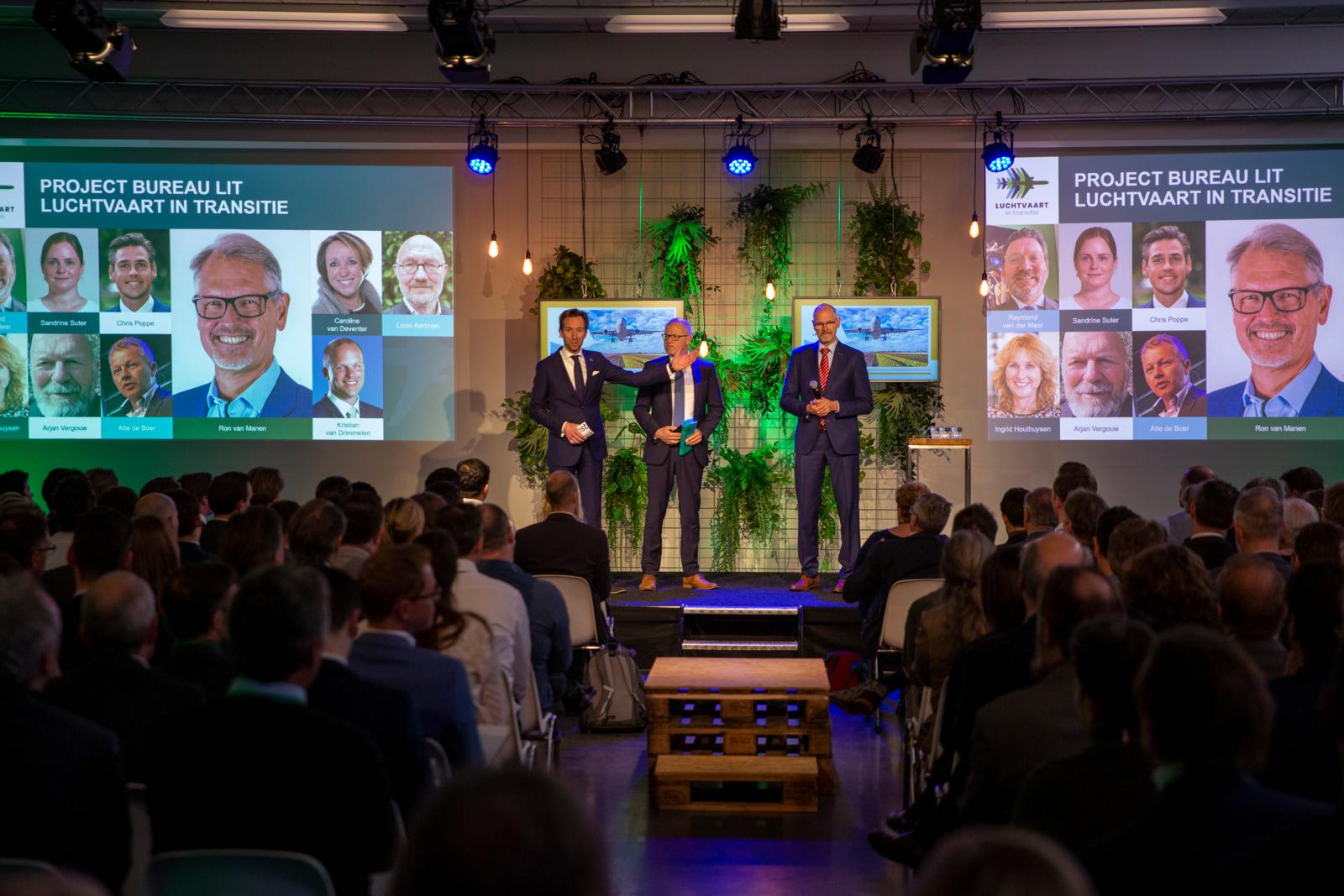
Kristian van Drimmelen of the project office explained the Aviation in Transition project. ‘There is no easy way to make aviation sustainable. A ‘silver bullet’ is missing. Therefore, within the project, we have made choices for aircraft technologies based on the greatest impact potential. Which innovations will contribute most to the sustainability of aviation? We have therefore placed technical emphasis on flying with hydrogen.’ Kristian then delved into the three project lines: sustainable technology, sustainable knowledge, and sustainable ecosystem.
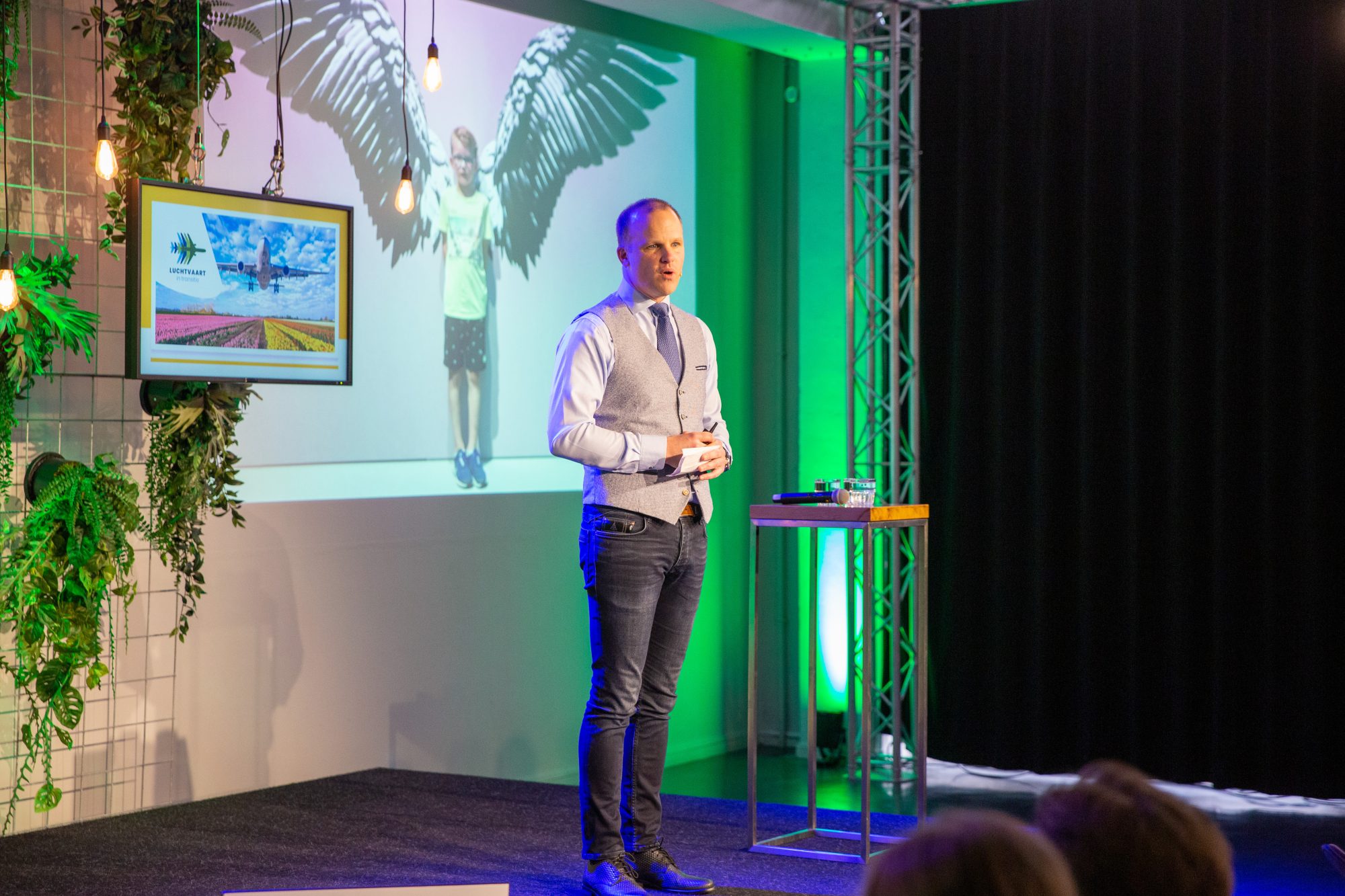
After the project explanation, Joost handed over to representatives of the more than 60 participating parties in the project. In two-minute pitches, they shared more about their contribution to the Aviation in Transition project.
Michiel Jas explained the two subprojects led by GKN Fokker. The first project aims to develop advanced high-power wiring systems for increased electrical power in hybrid-electric aircraft and hydrogen fuel cell systems. In the second project, Dutch companies and knowledge institutes collaborate on developing innovative production technologies for complex thermoplastic composite parts and integrated structures.
The project ‘Hydrogen Aircraft Powertrain and Storage Systems’ focuses on translating technologies from the automotive and maritime industries into solutions for aviation. HAPSS is dedicated to utilizing liquid hydrogen, fuel cells, electric motors, and efficient, silent propellers. The goal is to have the first hydrogen-powered flight from Rotterdam to London by 2028. Michel van Ierland from Conscious Aerospace indicates that they collaborate with a diverse range of partners to make this possible. He explains that developments in the production and logistical supply chain for hydrogen are also closely monitored. In the Netherlands, we are fortunate to have ports that can play a crucial role in hydrogen delivery. These logistical chains are now being set up to be used in the future.
The project ‘Hydrogen Conversion Turbofan’ aims to develop a retrofit modification that makes existing jet aircraft suitable for hydrogen combustion in a hybrid solution. This allows for the continued use of kerosene or a greener variant. Juriaan Kellermann of Fokker Next Gen shared his dream of preserving aviation for his children and future generations without the negative impact on the planet. The project will demonstrate the feasibility and safety of this by equipping a Fokker 100 with a liquid hydrogen fuel system and modified engines, enabling the aircraft to genuinely fly on hydrogen.
Sandrine Suter from the Royal Netherlands Aerospace Centre discusses the project ‘Promising Research.’ ‘This project focuses on the knowledge base for the long term: how do we proceed after 2030? We will conduct research on thermal management, virtual verification, new design methodologies, and smart materials, among other areas.
Renee van de Watering of the CvBLo concluded with her pitch about the Human Capital Agenda. She briefly discussed three results she aims to achieve in 2026. By that year, the Newton Flight Academy will have been established, offering a new way to entice young people to choose a career in technology, specifically in sustainable aviation. Additionally, structural agreements have been made for an adequate number of high-quality internship positions in the aviation sector. Finally, several education programs have been developed and revised, primarily work-study programs where students are already employed by a company during their studies. The benefit for the company is the connection with education, while the student enjoys job security during their studies and a competitive salary.
After the pitches, co-host Stella Wessels from the Aeronautical Study Association Leonardo da Vinci called for discussions during the break. She emphasized the collective courage demonstrated in working on all these ideas. She encouraged everyone to take this spirit to the project square, engage in conversations, and pose challenging questions to each other.
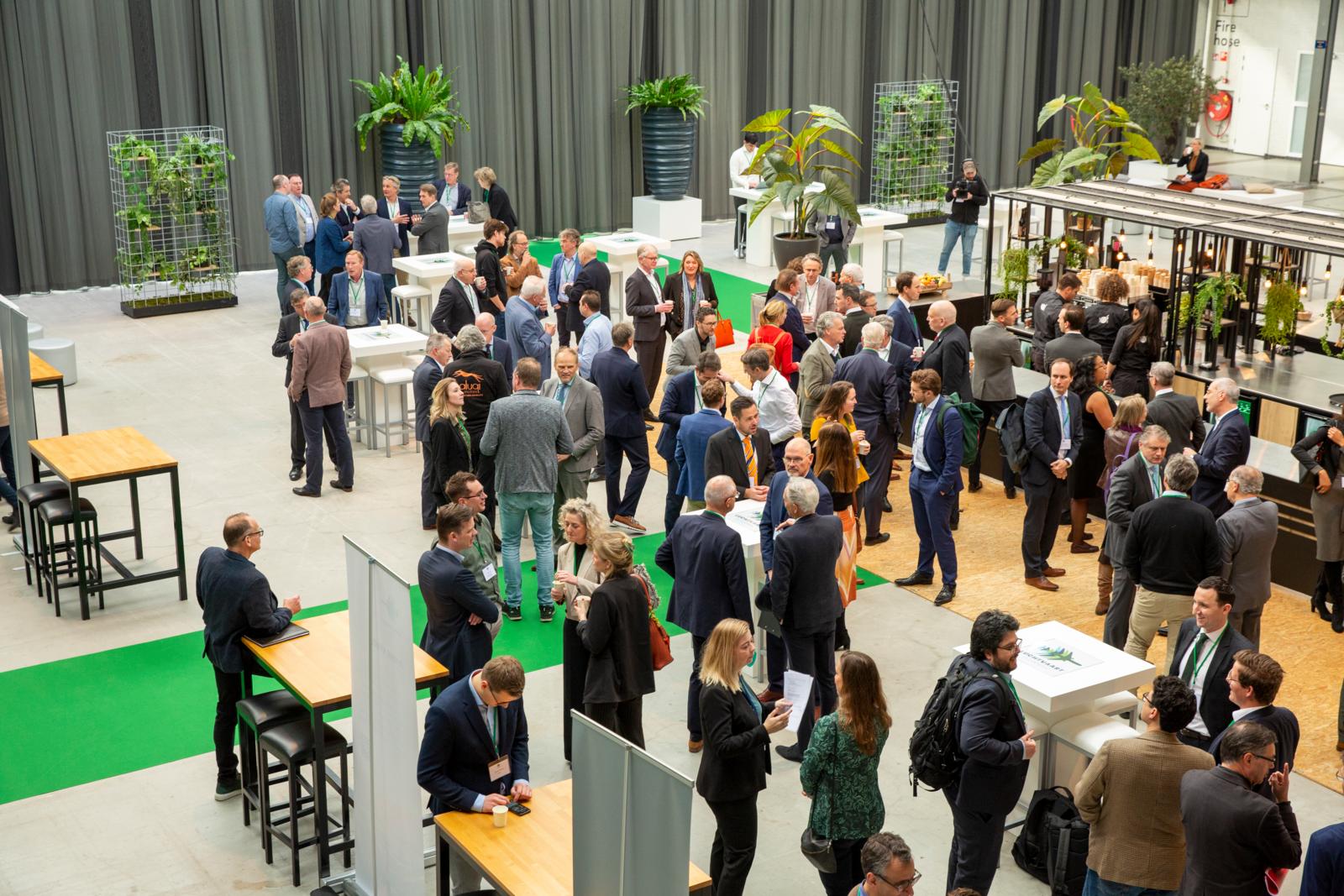
During the break, people walked past the banners of the 12 projects on the project square. Representatives at each banner were available to answer questions and provide explanations about the project plans.
After the break, several speakers took the stage. In his current role as Head of Strategic Development at the Clean Aviation Joint Undertaking, Ron van Manen spoke about the European integration of the Aviation in Transition project. Wouter van Wersch of Airbus and Caroline Nagtegaal member of the European Parliament had recorded video messages.
Caroline Nagtegaal emphasized that the added value of the Aviation in Transition project is that it brings together all developments in Europe, from education to cross-border collaboration.
Mustafa Amhaouch, Member of Parliament for CDA, discussed the importance of the manufacturing industry for the sustainability of aviation. In his memorandum on the revaluation of the manufacturing industry, he advocates for the government to focus more on talent in the manufacturing industry in the Netherlands and stimulate SMEs in the region.
At the end of the launch event, Minister Mark Harbers of Infrastructure and Water Management addressed the audience. In his speech, the minister emphasized the significance of the Aviation in Transition project for the Netherlands and the ambition to achieve climate-neutral aviation with minimal CO₂ emissions by 2050.
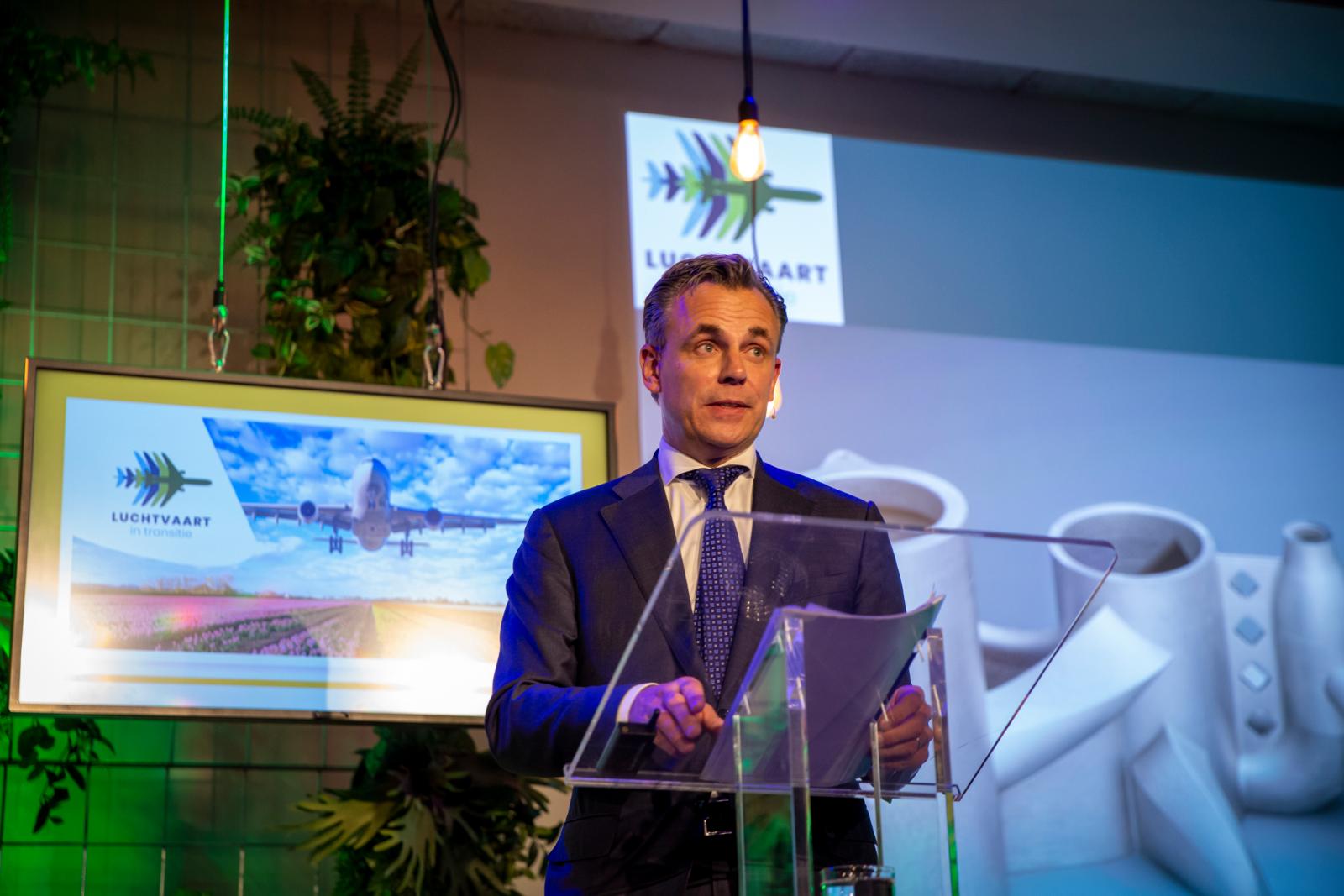
Following the launch event, Sandrine interviewed the minister. She asked him about the advice he would give to young people who want to contribute to the sustainability of aviation and what the future generation can expect from him.
The photos and videos accompanying this report of the launch event were made possible thanks to the audiovisual services of the Royal Netherlands Aerospace Centre. A selection of other photos they have taken is provided below.
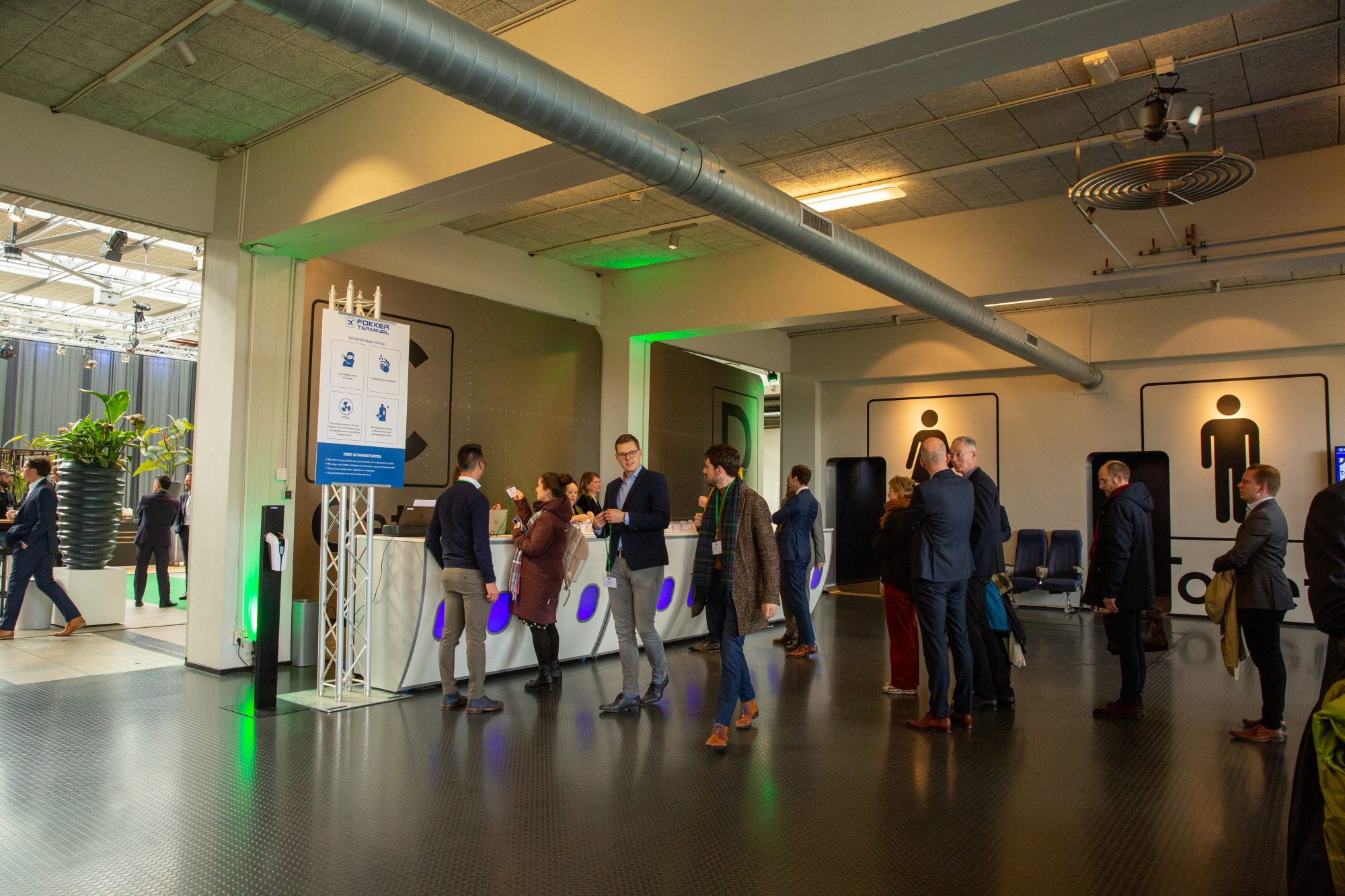
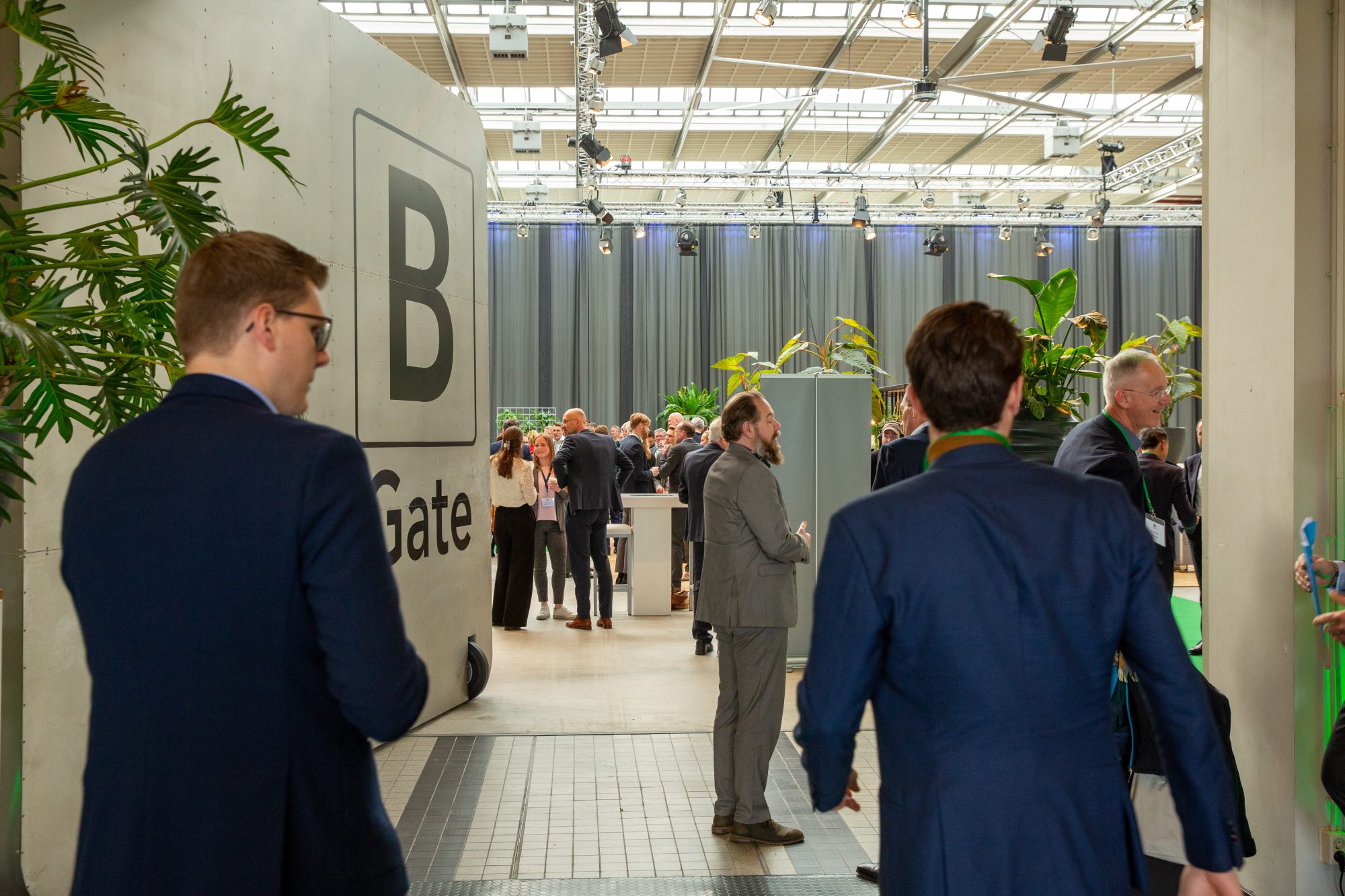
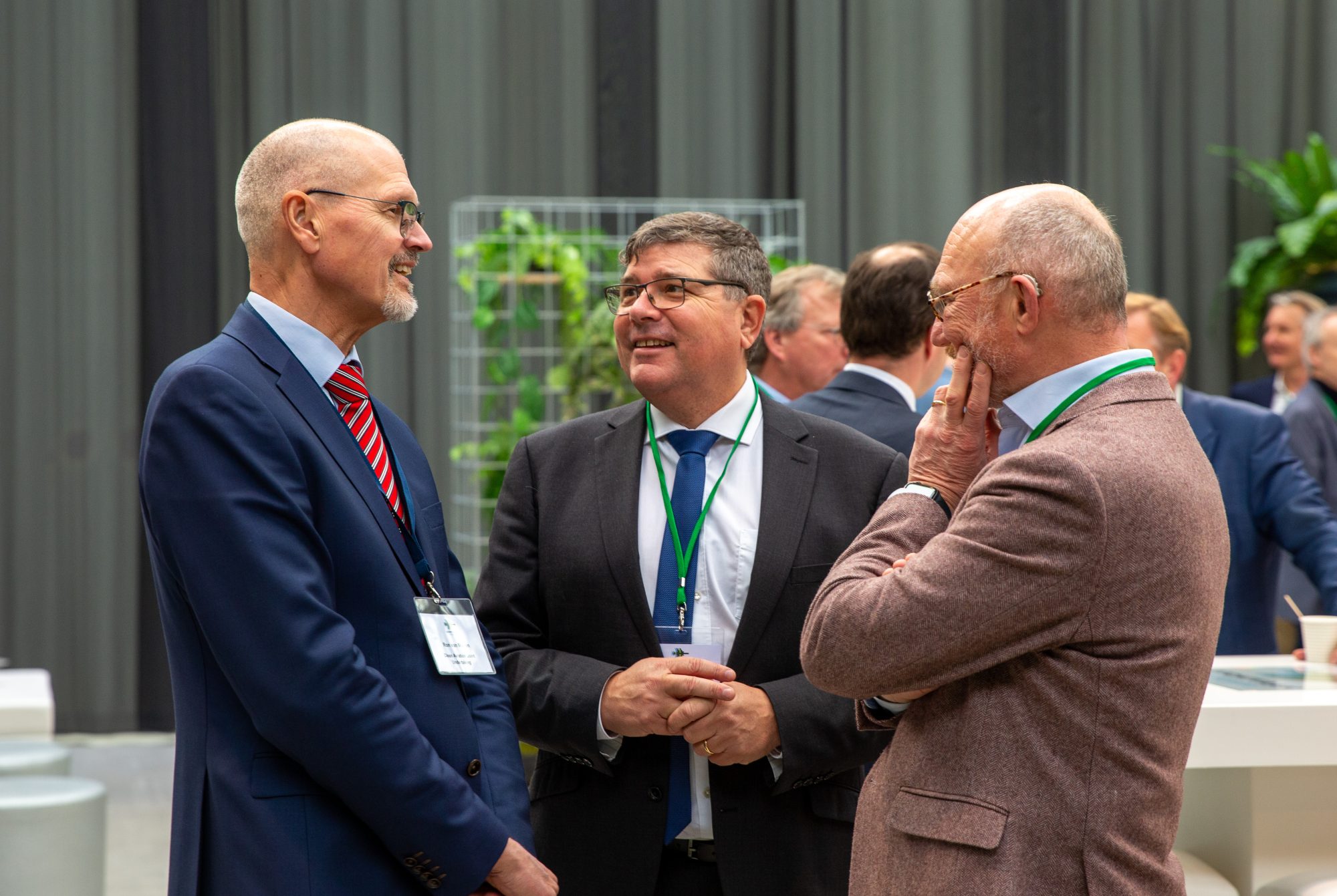
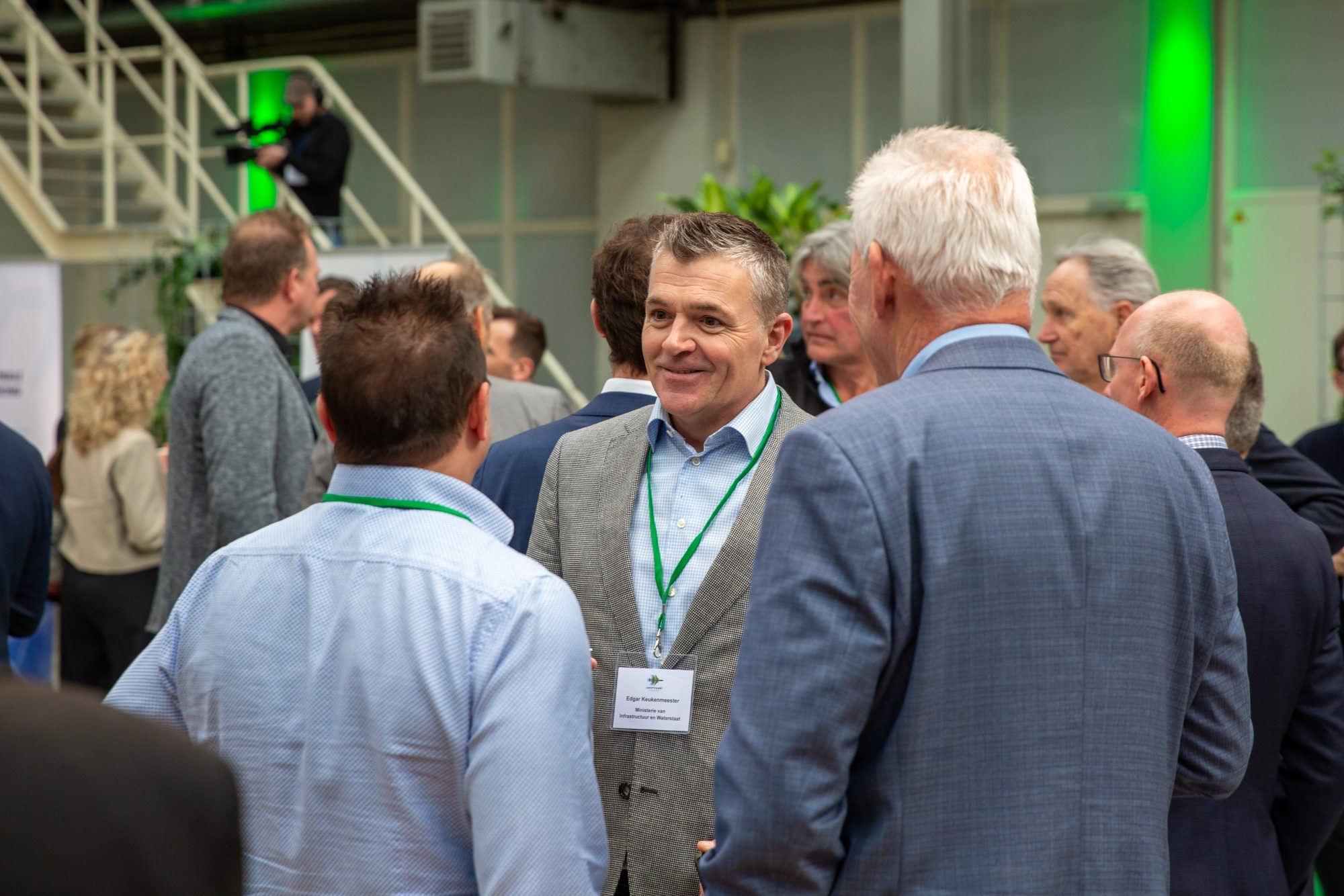

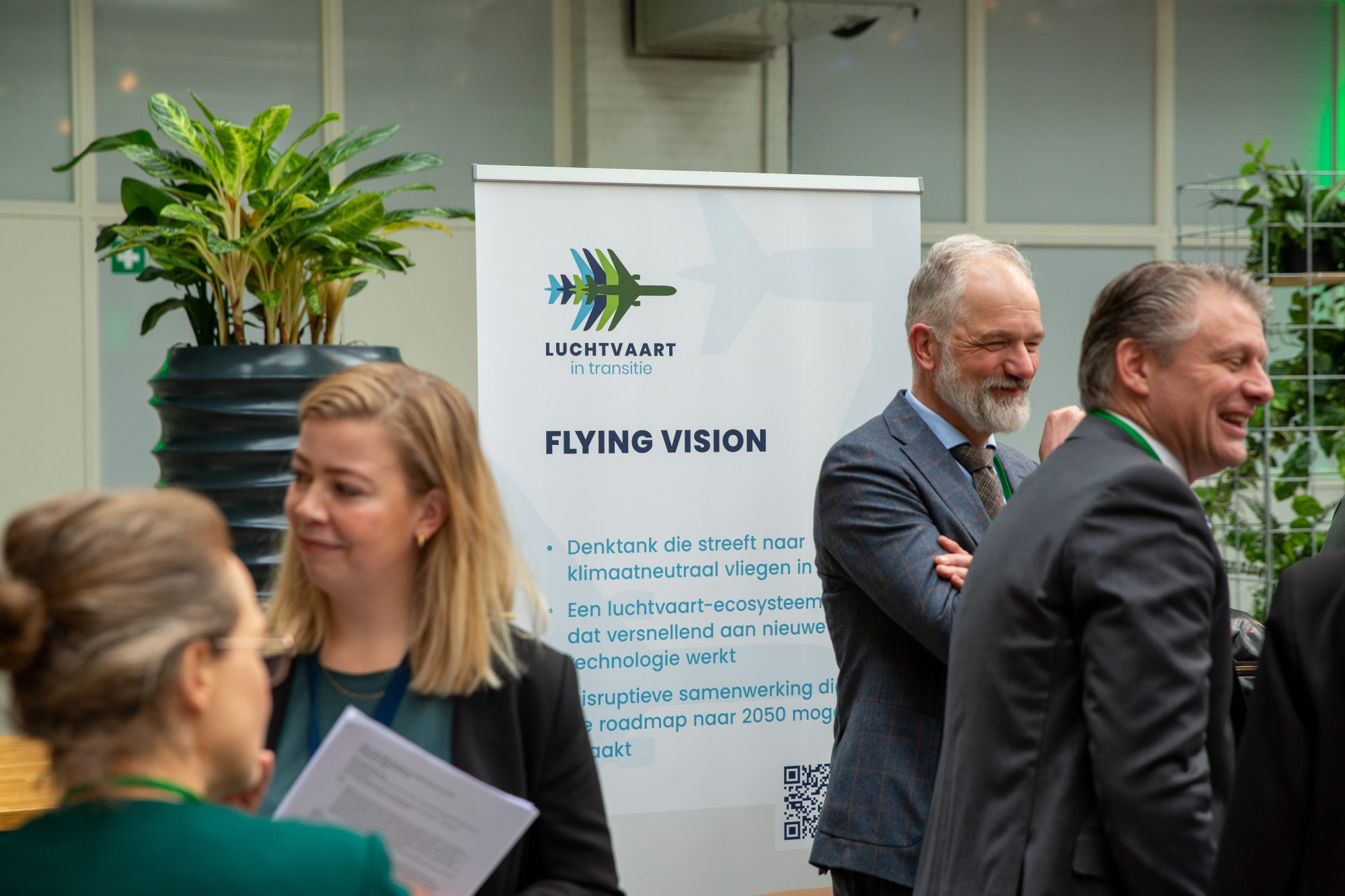
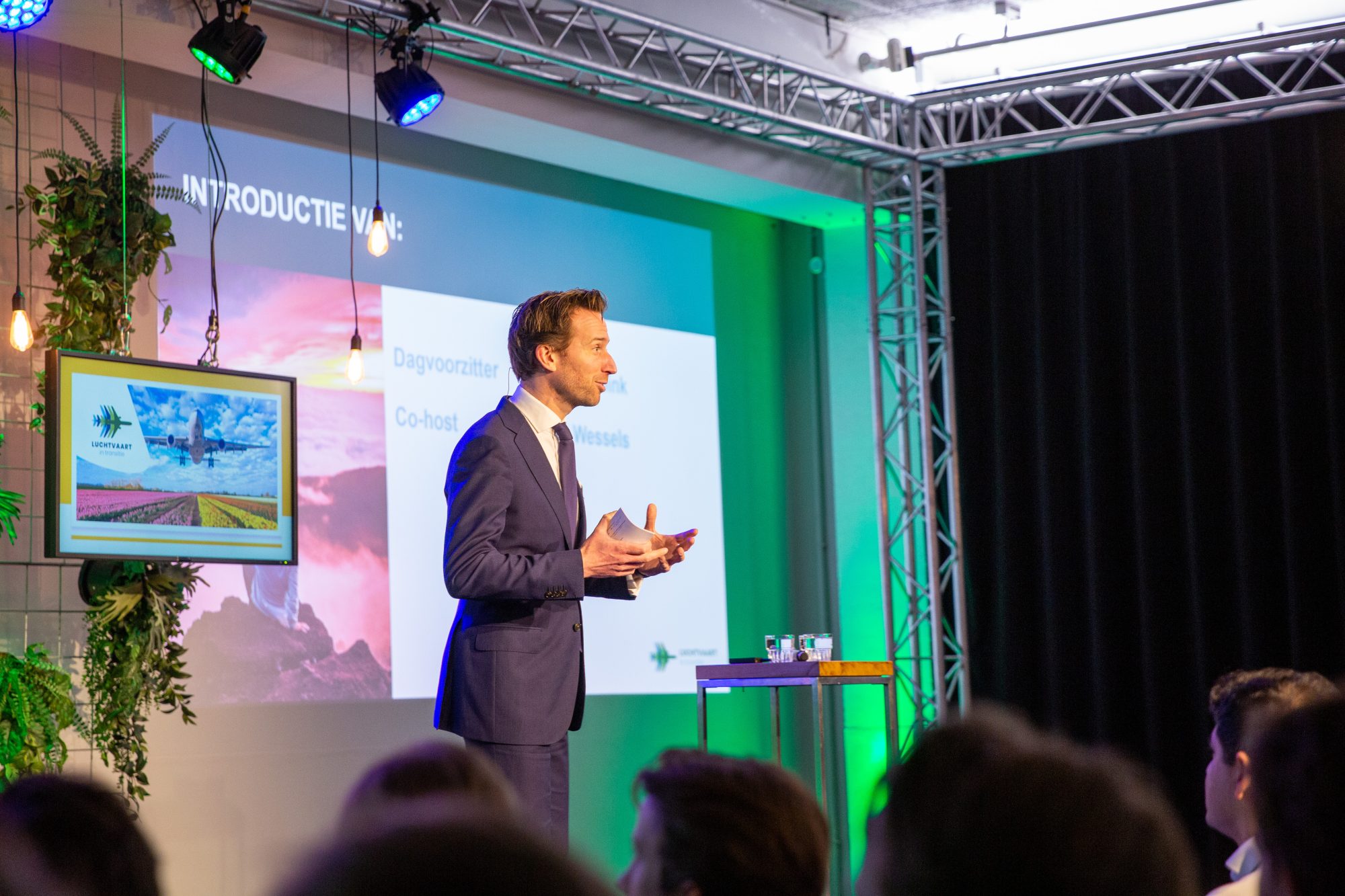

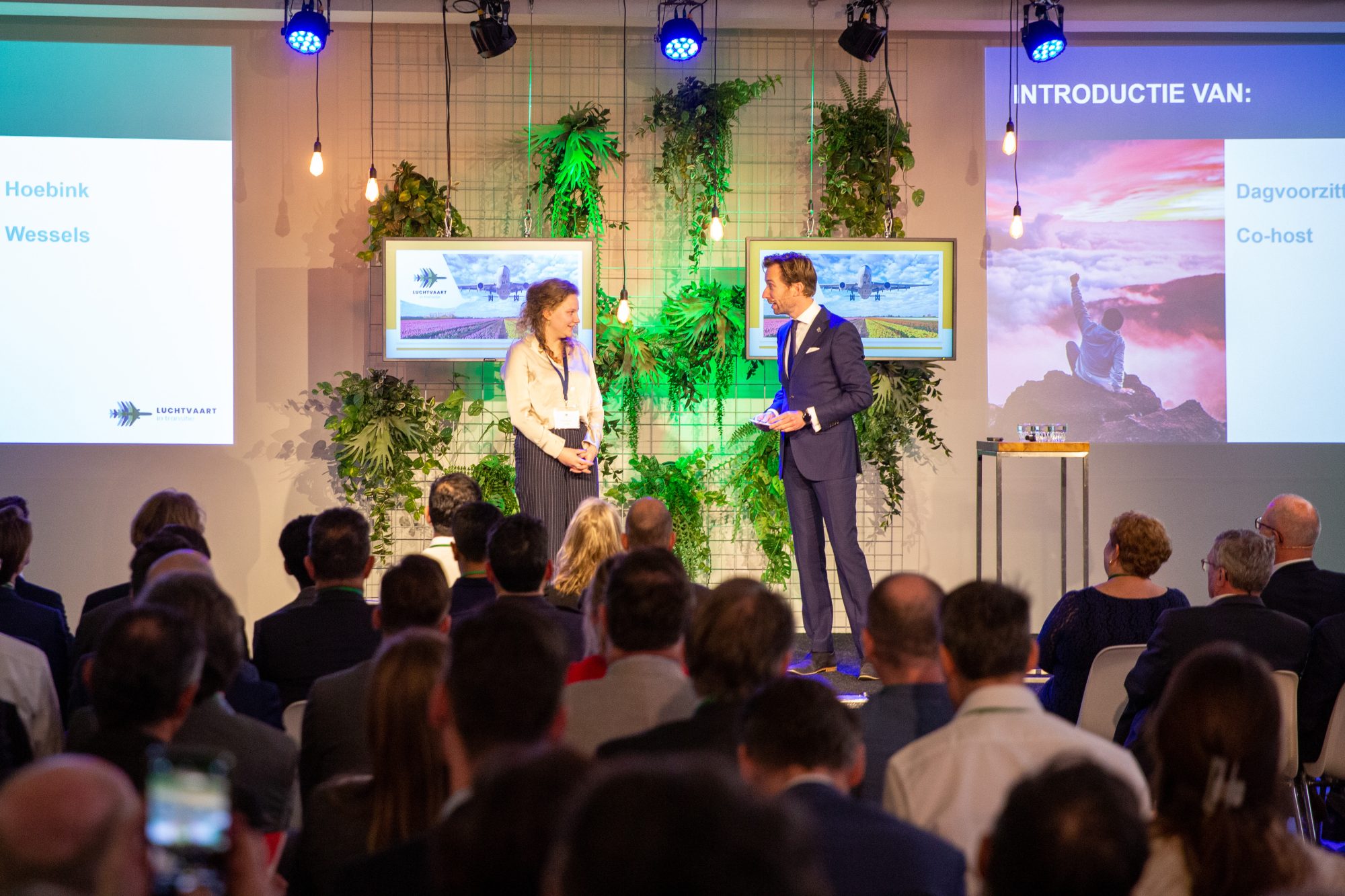
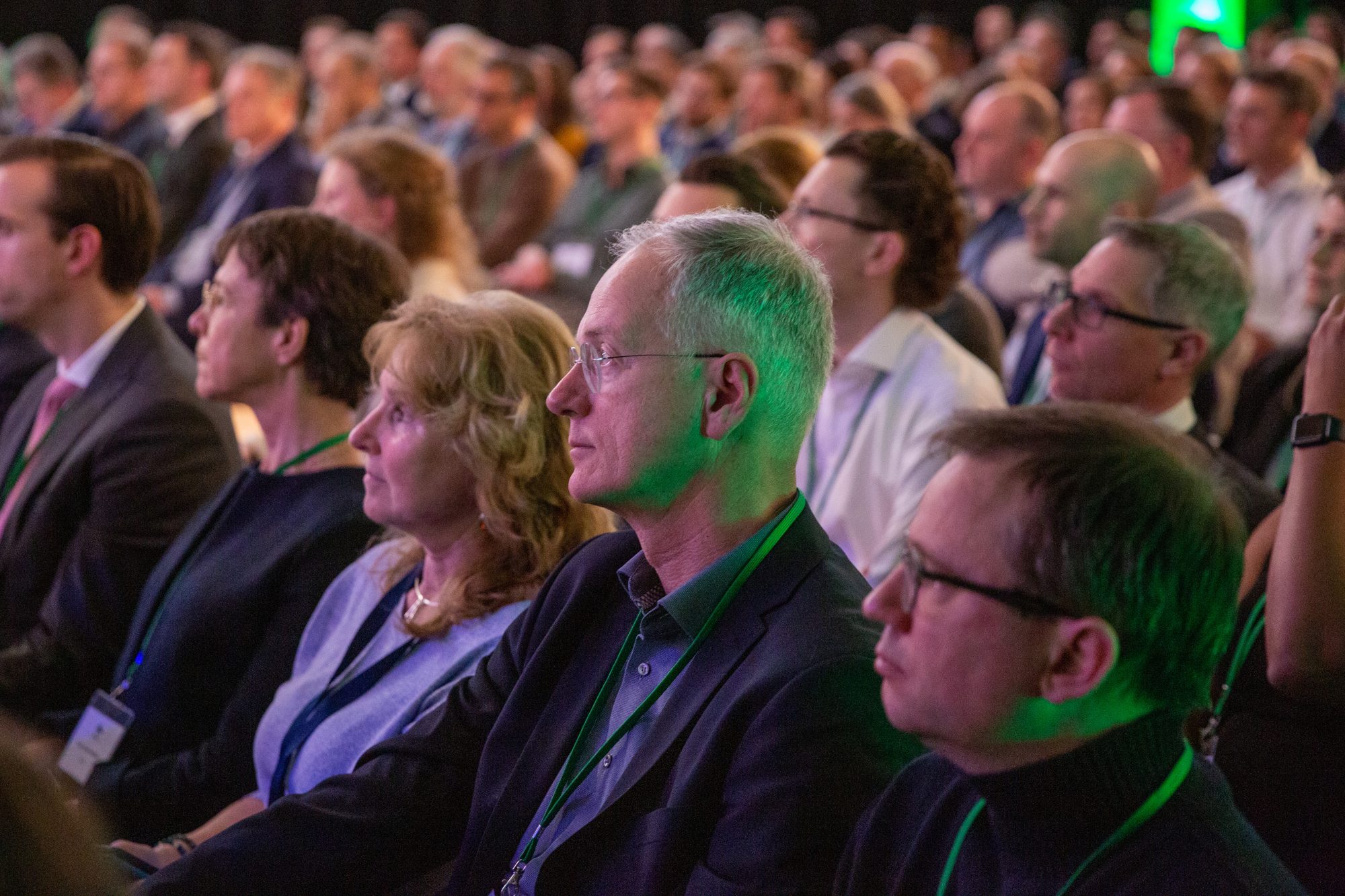
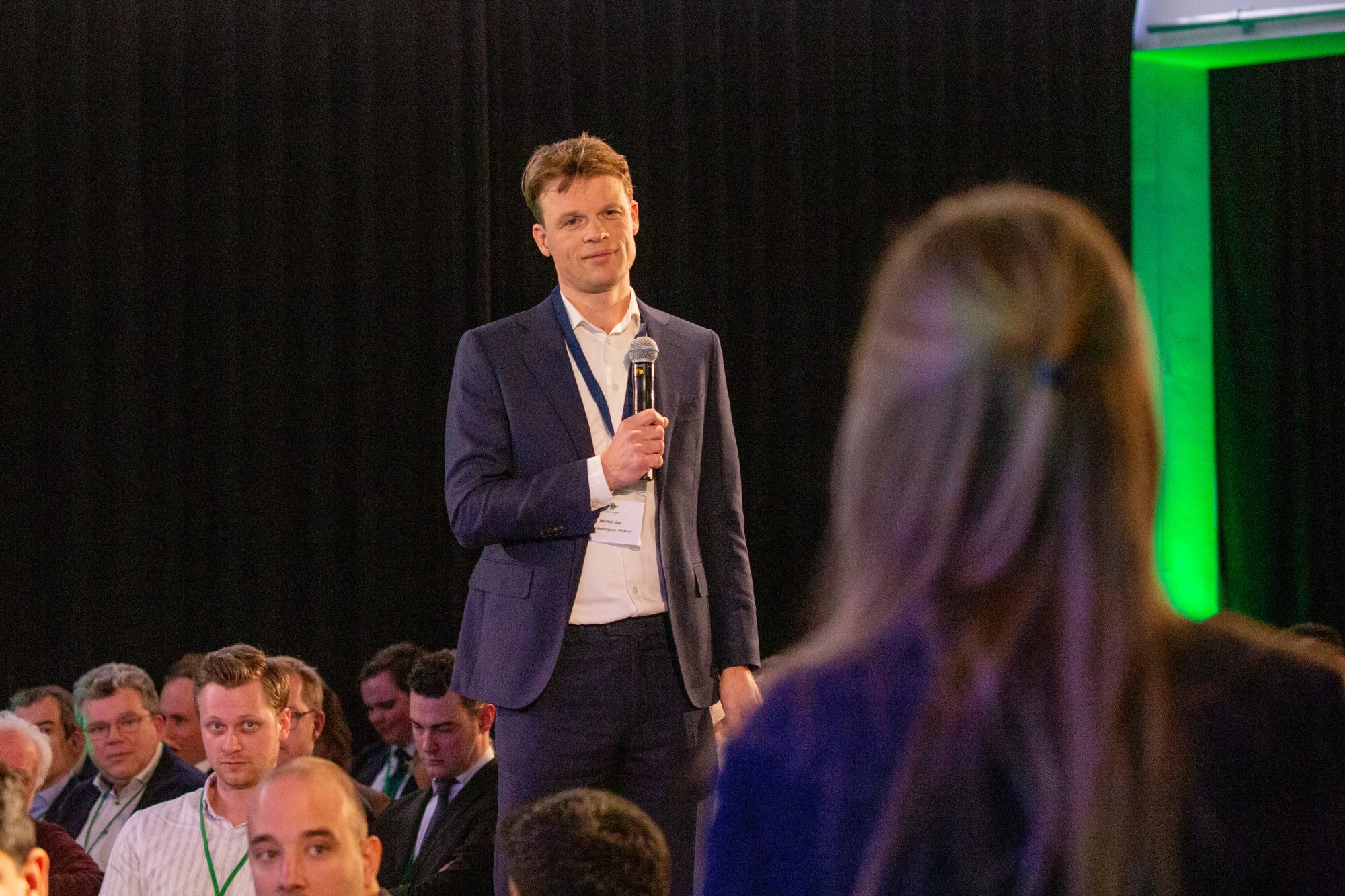
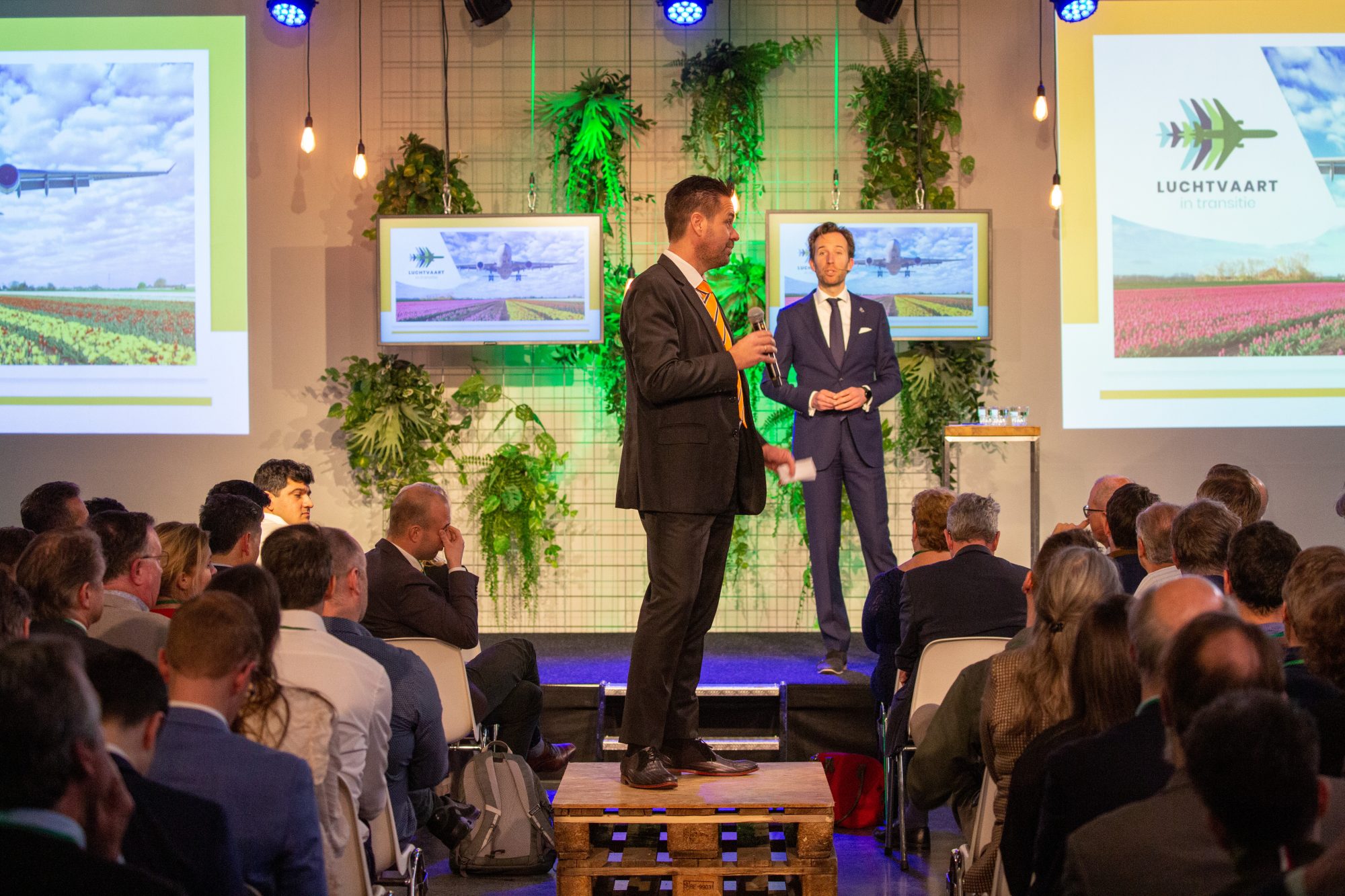
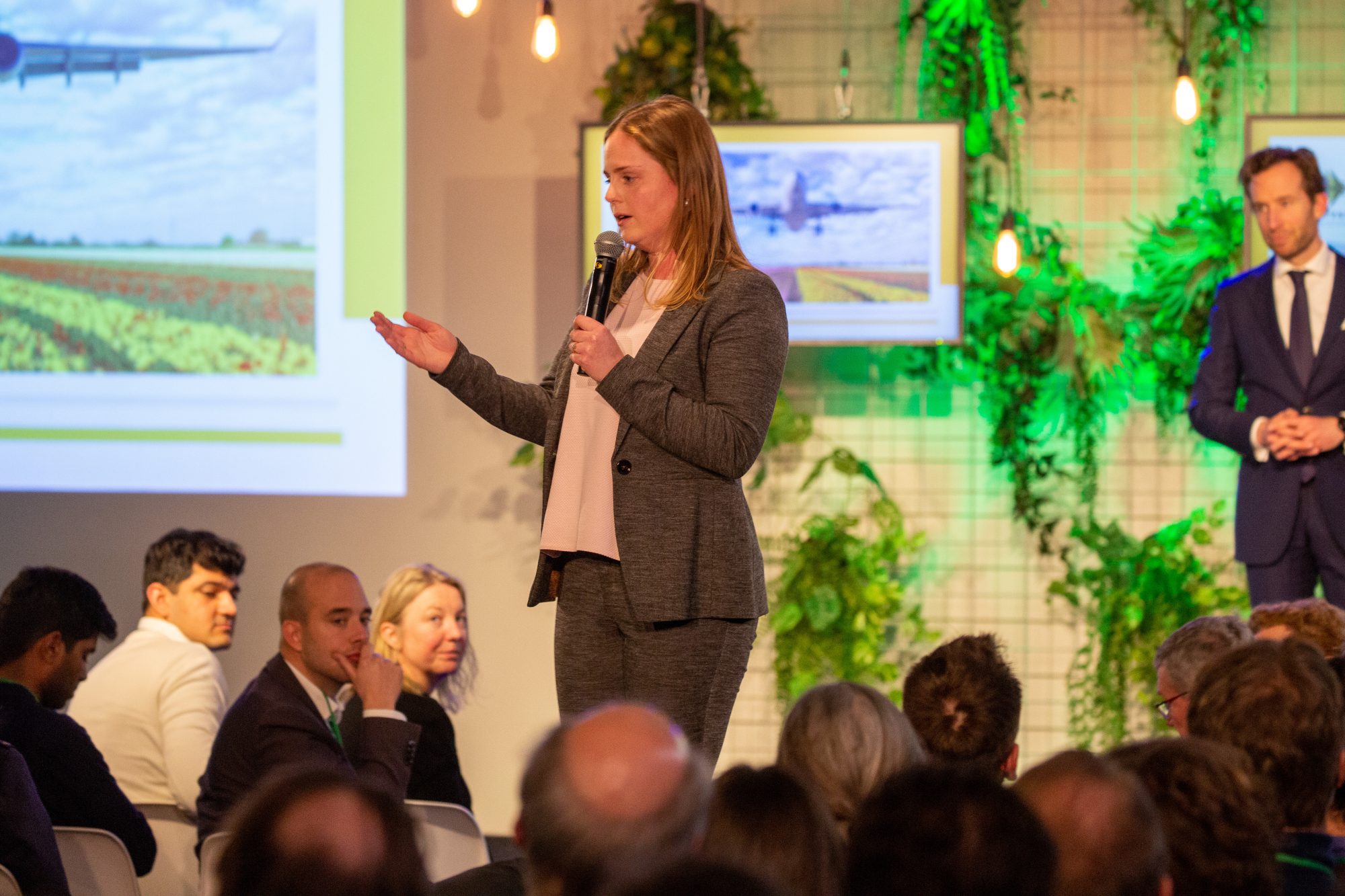
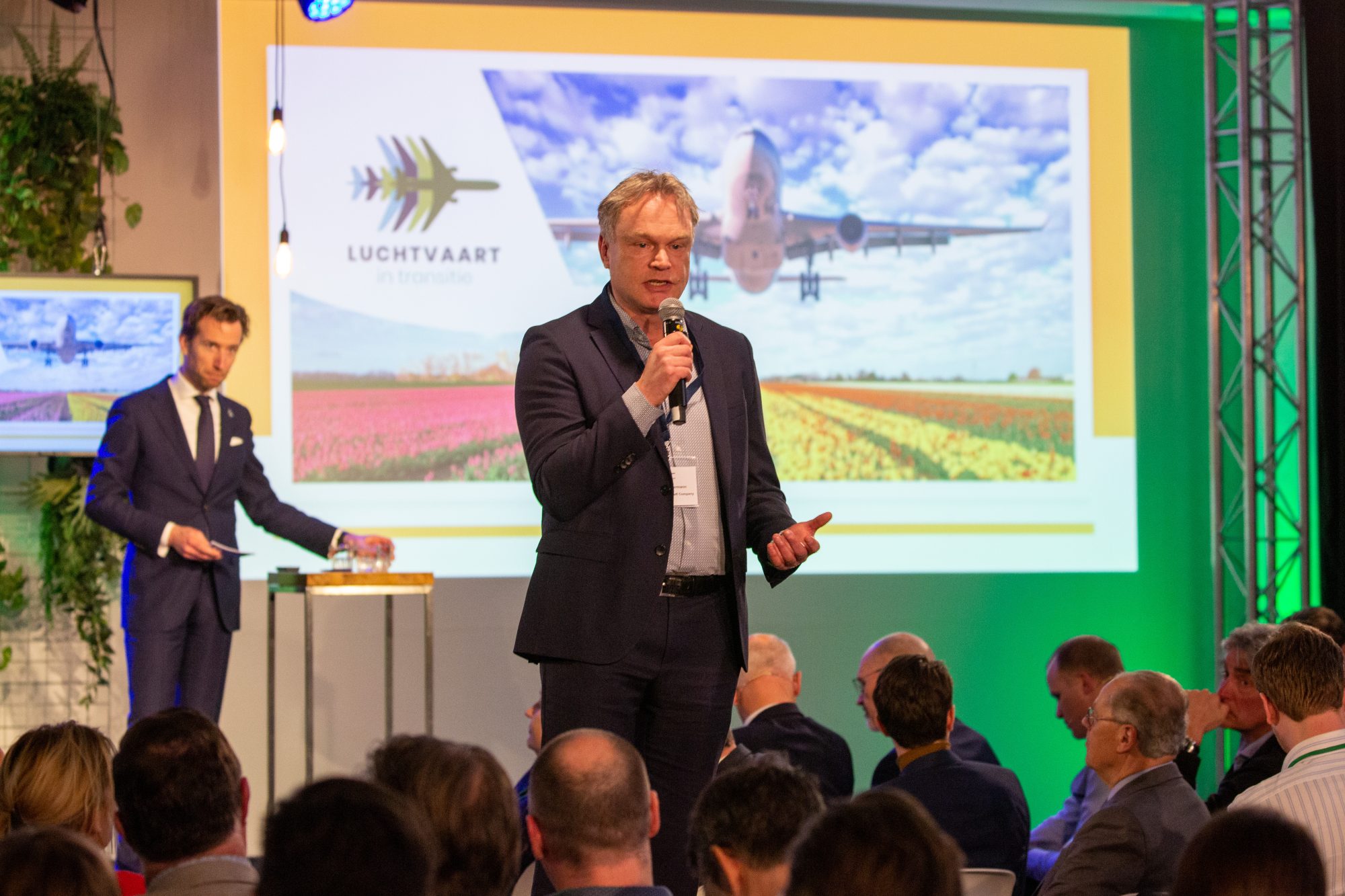
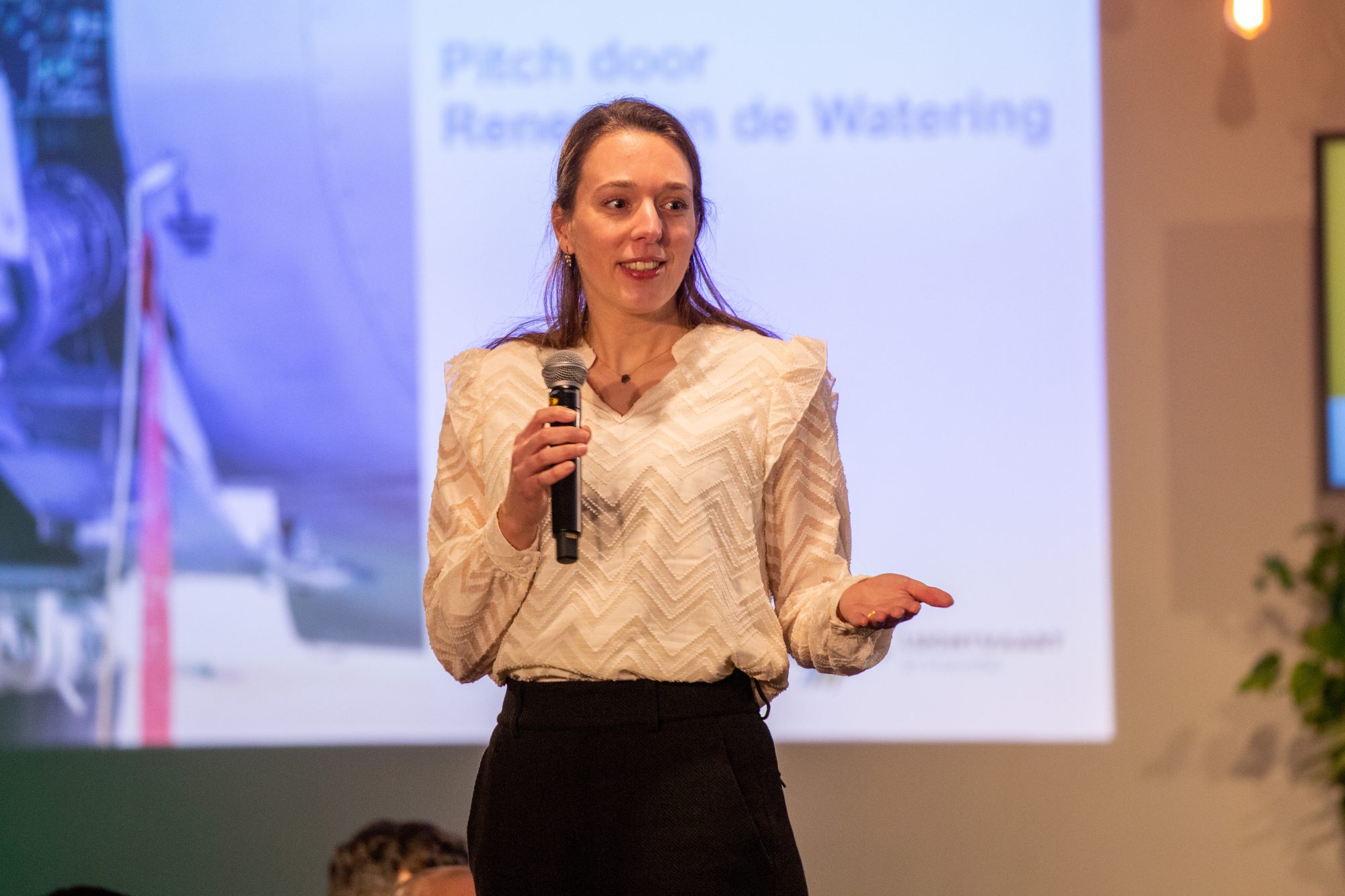
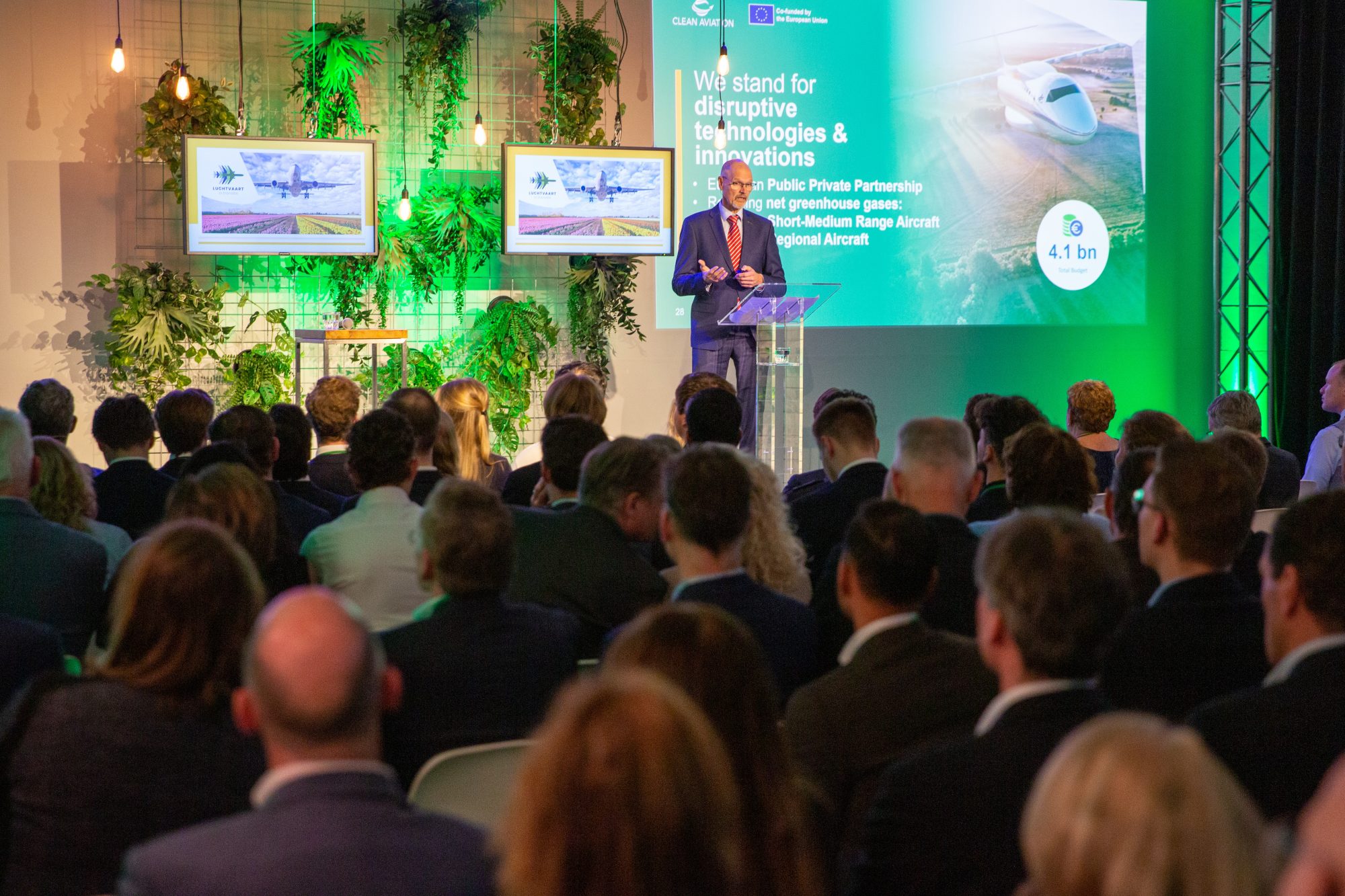
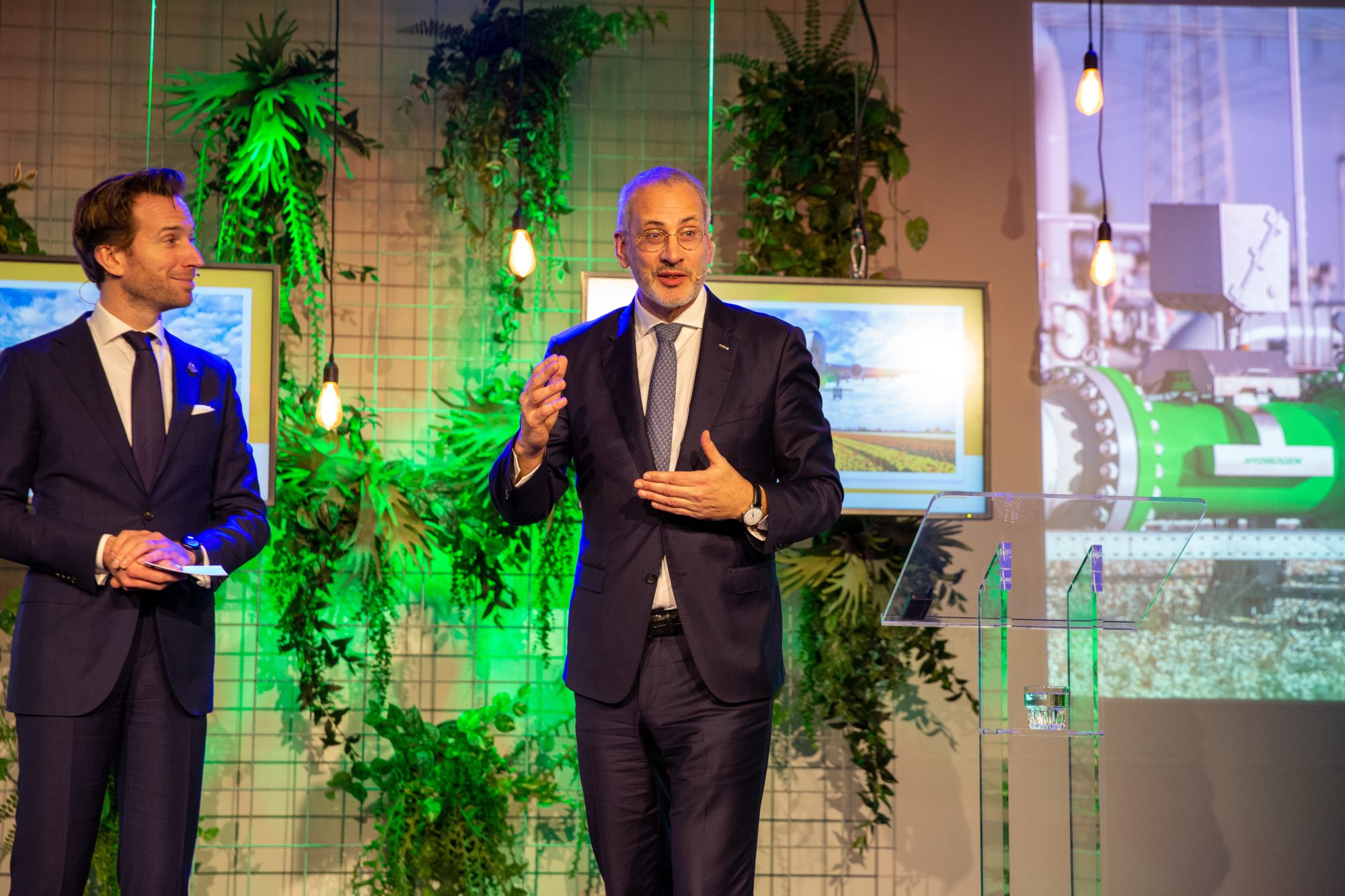
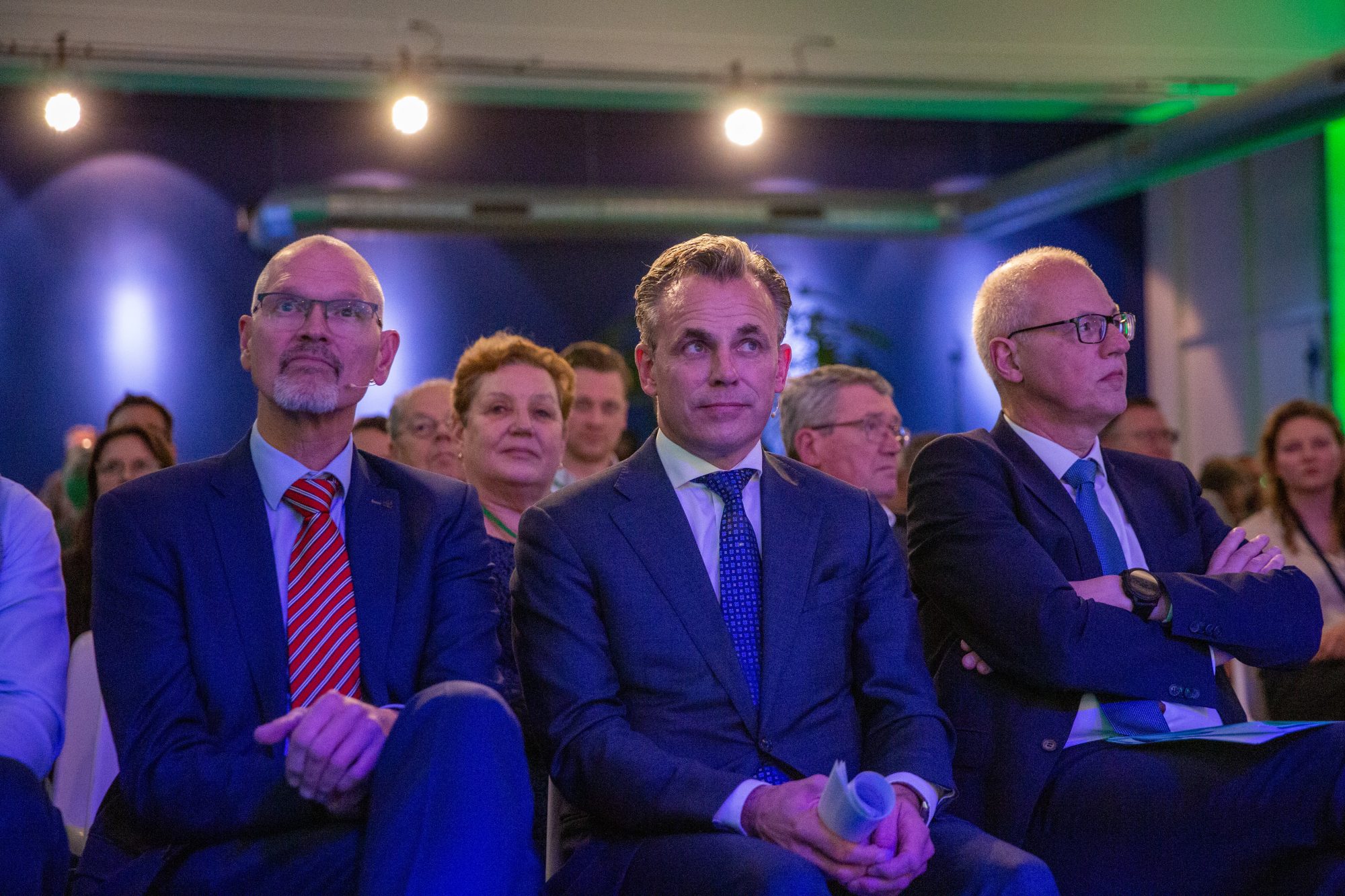
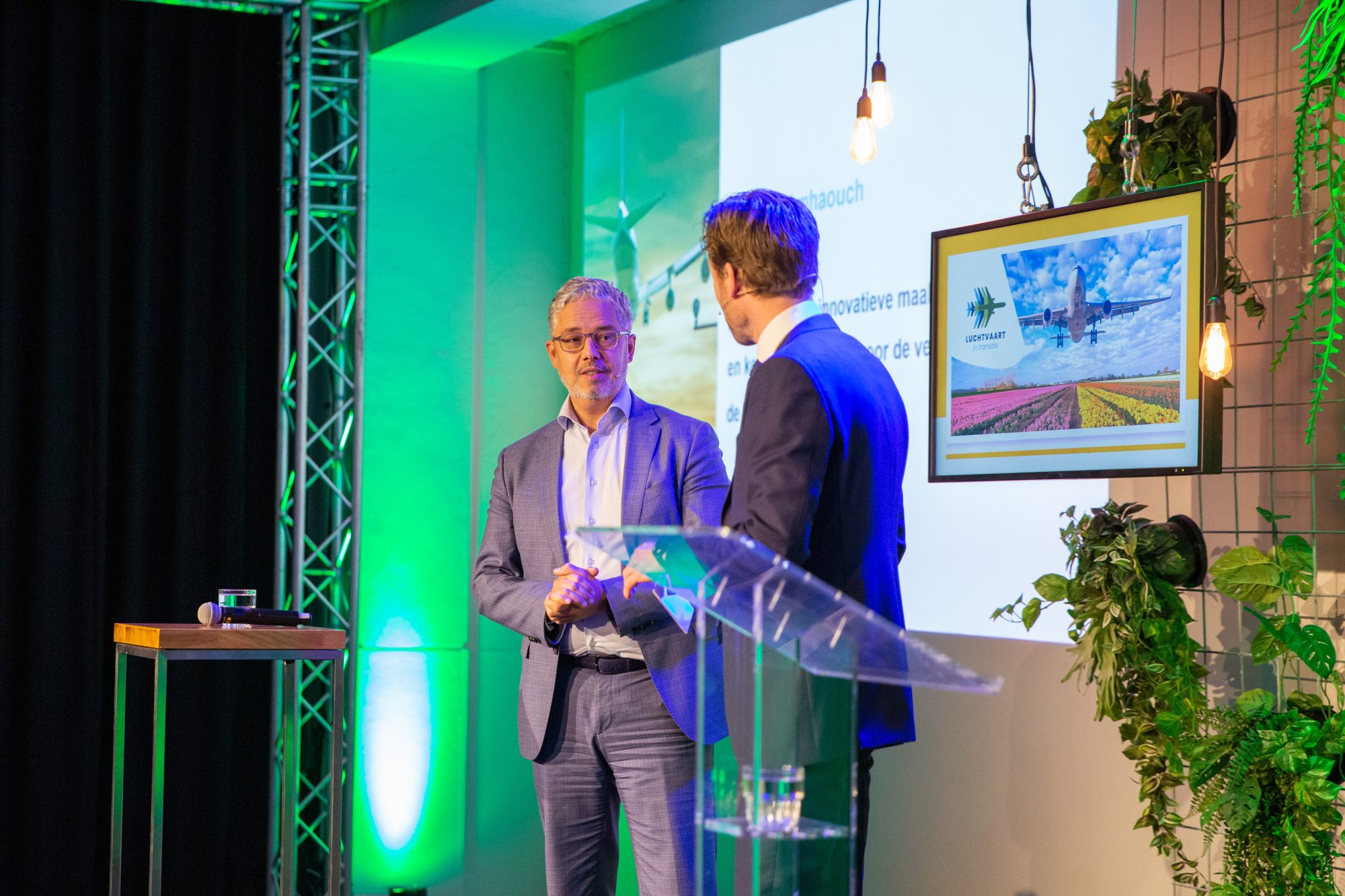
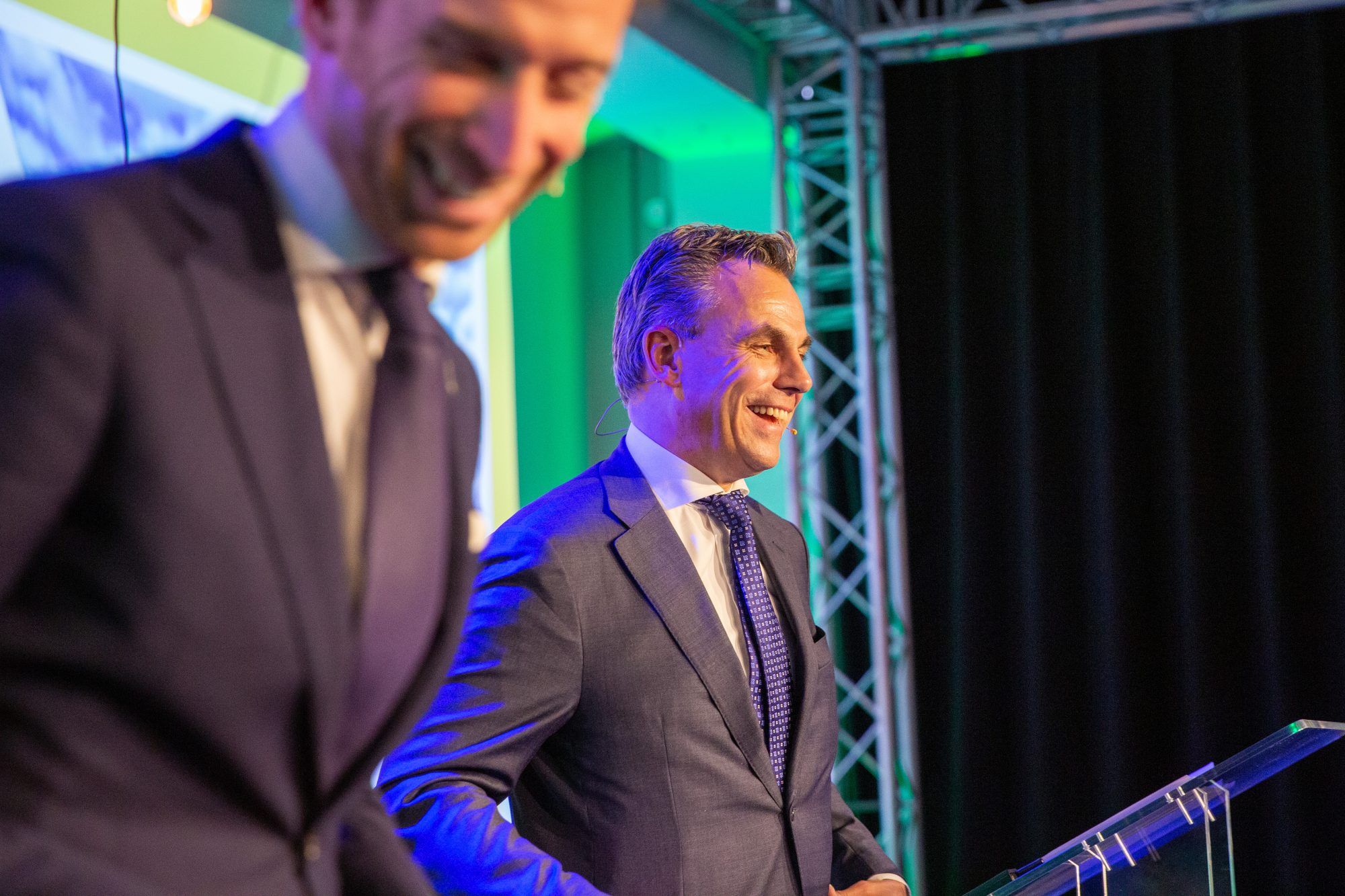
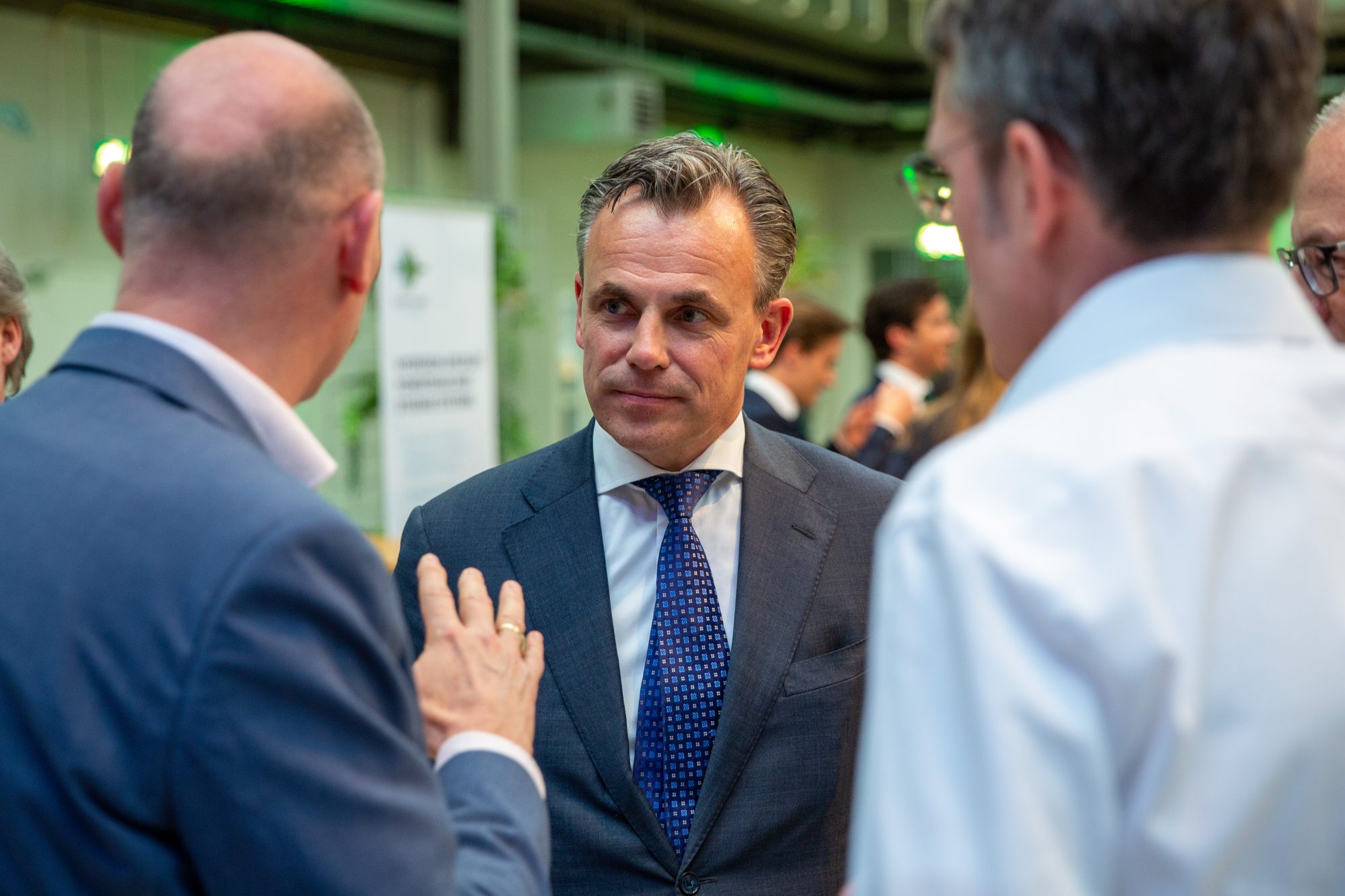
Share this
Related project
Hydrogen Optimization & Testing (HOT)
HOT aims to build validated knowledge and data on hydrogen fuel systems.
Hydrogen Aircraft Powertrain and Storage Systems (HAPSS)
The project develops a hydrogen-electric powertrain for a Dash 8-300 aircraft to achieve emission-free regional flights.
Materials, production technology and structures
This project develops innovative production tecnologies for complex thermoplastic composite parts and integrated structures.
Advanced Electrical Wiring
This project develops advanced high-power wiring systems for hybrid-electric aircraft and hydrogen fuelcell systems.
Thermal and Pneumatic Systems (TePS)
For hydrogen-electric powertrains on board low-emission aircraft, new cooling systems and turbo compressors are required.
Flying Vision Accelerator
The goal of Flying Vision is to achieve a 'holistic' collaboration within the aviation ecosystem.
Promising Research
Research to support the manufacturing industry after 2030 by focussing on long term solutions.
Dutch Aviation Systems Analysis Lab
This project analyses and monitors the effects of innovations on sustainability, and economic and societal impacts.
Strengthening Ecosystem & International Collaboration
This project strengthens the Dutch ecosystem by helping it position itself in key global value chains.
Human Capital Agenda
The Human Capital Agenda prepares the labor market for sustainable aviation with sufficient, well-trained personnel.


